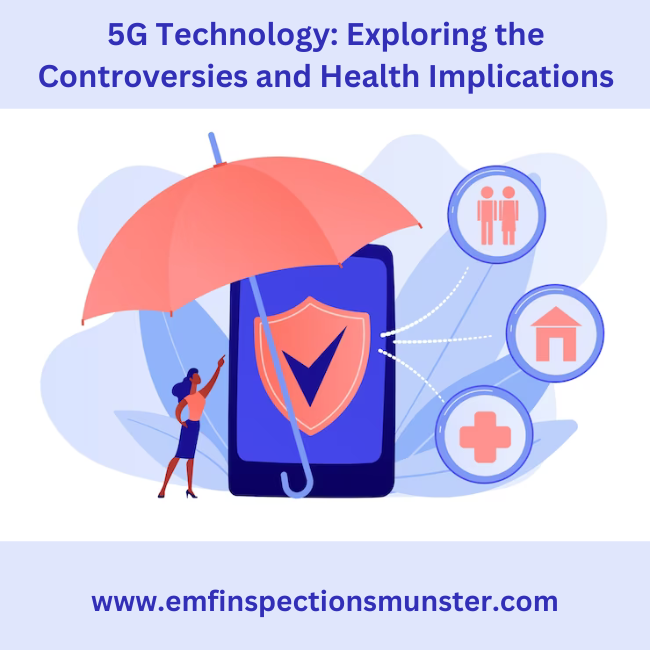Mobile tower radiation Cork the advent of 5G technology promises faster speeds, increased connectivity, and improved efficiency for our digital world. However, it has also sparked controversies and concerns regarding potential health implications. In this blog, we will delve into the controversies surrounding 5G technology and explore the current understanding of its health implications.
5G Technology: A Brief Overview
5G, or fifth-generation technology, is the latest advancement in wireless communication networks. It aims to provide faster data transfer rates, reduced latency, and increased capacity compared to previous generations. By utilizing higher frequency bands and smaller cell sizes, 5G technology promises to transform various industries and enhance our connected lives.
Controversies Surrounding 5G:
Electromagnetic Radiation (EMR) Exposure:
One of the primary concerns associated with 5G technology is the potential increase in electromagnetic radiation exposure. The deployment of 5G requires a higher density of small cell towers, which can result in closer proximity to individuals. Critics argue that prolonged exposure to the higher frequency millimeter waves used in 5G may have adverse health effects.
Lack of Long-Term Studies:
Another point of contention is the limited availability of long-term studies on the health effects of 5G technology. As 5G is relatively new, there is a lack of comprehensive research evaluating its potential long-term impacts on human health. Critics argue that this knowledge gap calls for a cautious approach.
Current Understanding of Health Implications:
Regulatory Standards and Guidelines:
International regulatory bodies, including the World Health Organization (WHO) and the International Commission on Non-Ionizing Radiation Protection (ICNIRP), have established guidelines to ensure that EMR exposure remains within safe limits. These organizations continue to monitor research and update guidelines accordingly.
No Established Causal Link:
To date, no conclusive evidence establishes a direct causal link between 5G technology and adverse health effects. Research on the health implications of electromagnetic radiation is ongoing, and the available scientific literature suggests that 5G technology is unlikely to pose unique risks compared to previous generations.
Potential Benefits to Healthcare:
While controversies exist, proponents of 5G technology highlight its potential benefits in healthcare, including improved telemedicine capabilities, remote monitoring, and advancements in medical research. These applications have the potential to revolutionize healthcare delivery and improve patient outcomes.
Monitoring and Research:
As 5G technology continues to be deployed, ongoing monitoring and research are crucial. Scientists and regulatory bodies need to conduct comprehensive studies to evaluate any potential health risks associated with 5G and ensure that regulatory guidelines remain up-to-date and protective of public health.
Conclusion:
The controversies surrounding 5G technology’s health implications highlight the importance of continued research, monitoring, and regulatory oversight. While concerns exist regarding increased electromagnetic radiation exposure, the current scientific understanding suggests that 5G technology, when implemented within established safety guidelines, is unlikely to pose unique health risks compared to previous wireless technologies.
As technology evolves, it is vital to strike a balance between embracing innovation and ensuring the safety and well-being of individuals. Ongoing scientific research and adherence to regulatory standards will provide a clearer understanding of the health implications of 5G technology. By staying informed, engaging in responsible dialogue, and monitoring developments, we can navigate the controversies surrounding 5G and make informed decisions that prioritize both technological advancements and public health.


